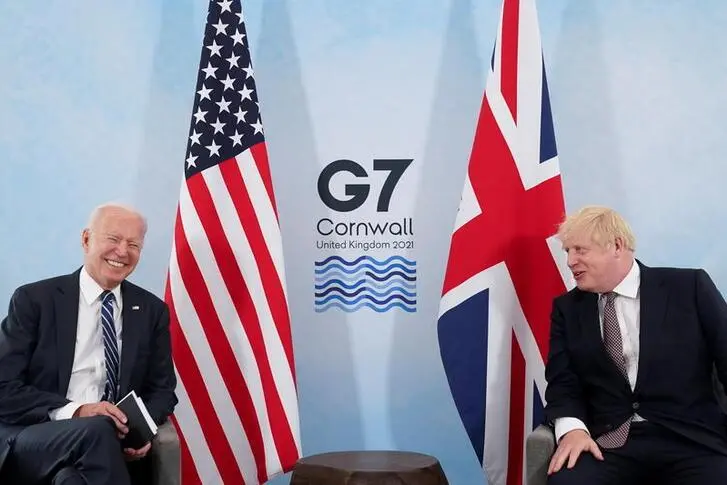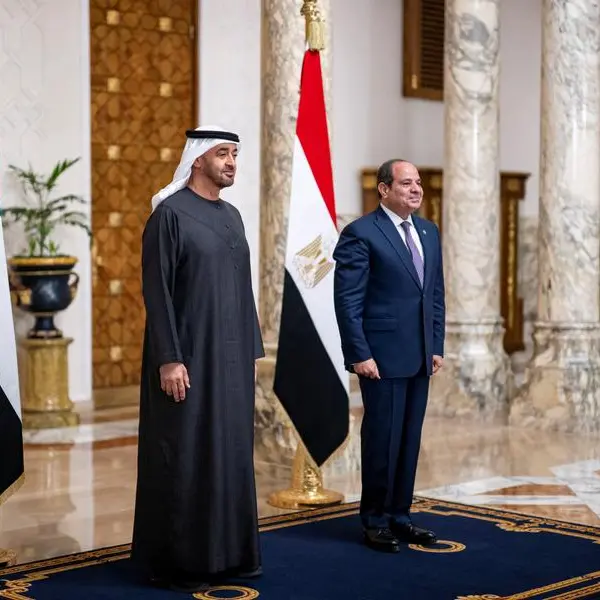PHOTO
As dozens of world leaders gather in New York for the annual UN meetings, the eyes of many will be focused instead about 350km south in Washington as Joe Biden prepares to host the leaders of the other “Quad”powers of India, Japan and Australia.
While the Quad, or Quadrilateral Security Dialogue, was initiated in 2007, it has come into much greater focus in the past few years. The seriousness that the Biden team places on the loose alliance is shown by the White House’s initiation of what is the first in-person leadership meeting of the four powers with prime ministers Scott Morrison, Narendra Modi and Yoshihide Suga in attendance.
While some have dismissed the importance of the group, its relevance as an emerging anti-China alliance was underlined by last week’s establishment by London, Washington and Canberra of an enhanced trilateral security partnership to defend “shared interests in the Indo-Pacific,” with China the unmentioned key focal point. The AUKUS partnership could be hugely important, with UK national security adviser Stephen Lovegrove asserting: “It is perhaps the most significant capability collaboration anywhere in the world in the past six decades.” Indeed, while massive UK media attention has focused on Boris Johnson’s ministerial reshuffle, the most important decision he made last week isn’t about his new Cabinet, but the new intelligence and defense agreement.
The three nations are separated geographically but they have deep historical ties, and are key members of the “Five Eyes” intelligence alliance with Canada and New Zealand. The new deal will bring new relevance to this long standing partnership, including collaboration on a fleet of nuclear powered submarines for the Australian Navy, with Washington and London sharing advanced technologies.
The new agreement will have ramifications not just for the existing Quad powers, but other countries too. France, for example, a NATO ally of the US and UK, is furious as it had signed a now-dead deal to build a fleet of diesel electric submarines for the Australian Navy.
However, it is China for which the deal has the most implications. While UK, US and Australian officials insist the new defense agreement is not a response to any one country, all three share concerns about Beijing’s military build-up in the Indo-Pacific.
What the deal also underlines is how much the US wants greater cooperation to be central to countering China. This is shown also in recent developments within Five Eyes, which came under new stress over Chinese participation in international 5G telecommunications networks.
The origins of Five Eyes lie in the remarkable intelligence relationship that the US and UK enjoyed in the Second World War, which was institutionalised in the 1946 BRUSA Agreement. To be sure, the US has other intelligence relationships with key allies. But the closest cooperation is among the Five Eyes countries bonded by decades of strong security and economic, political and cultural ties, with their geographical spread across the globe meaning that members divide intelligence gathering responsibilities by region.
However, the mutual trust that is the foundation of these exchanges had been challenged by several developments, including Chinese 5G telecommunications technology. The US and Australia have been the most vociferous in their opposition, with both nations banning Chinese-companies from supplying equipment to their 5G networks. But the Five Eyes powers have not been unified on this issue, with New Zealand, Canada, and the UK having more nuanced positions. In London, tensions on this issue surfaced between the Trump team and the former Theresa May government, and indeed that of Johnson, with London considering allowing Chinese companies a limited role in building “non-core” parts of the 5G network. Johnson ultimately U-turned on this issue under intense pressure from Donald Trump.
This complex, troubled decision was a high stakes diplomatic balancing act for London given its desire to form closer post-Brexit economic ties with China. Recent UK ministers have increasingly perceived that enhancing relations with Beijing is in the national interest, after relations went into a deep freeze in 2012 when Prime Minister David Cameron offended Beijing by meeting the Dalai Lama.
UK officials calculate that President Xi Jinping could be in power into the 2030s, and that there is an opportunity to develop a relationship that could make a significant contribution to UK prosperity for a generation to come. But Johnson has placed an even higher priority on building stronger ties with the US, including a new trade deal, and the AUKUS agreement indicates that he has decided to reinforce the relationship with Washington despite the costs this will bring for the relationship with Beijing.
- Andrew Hammond is an Associate at LSE IDEAS at the London School of Economics.
Copyright: Arab News © 2021 All rights reserved. Provided by SyndiGate Media Inc. (Syndigate.info).





















